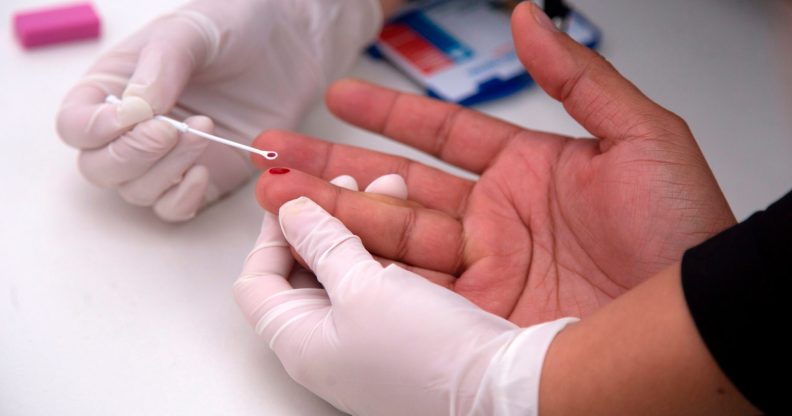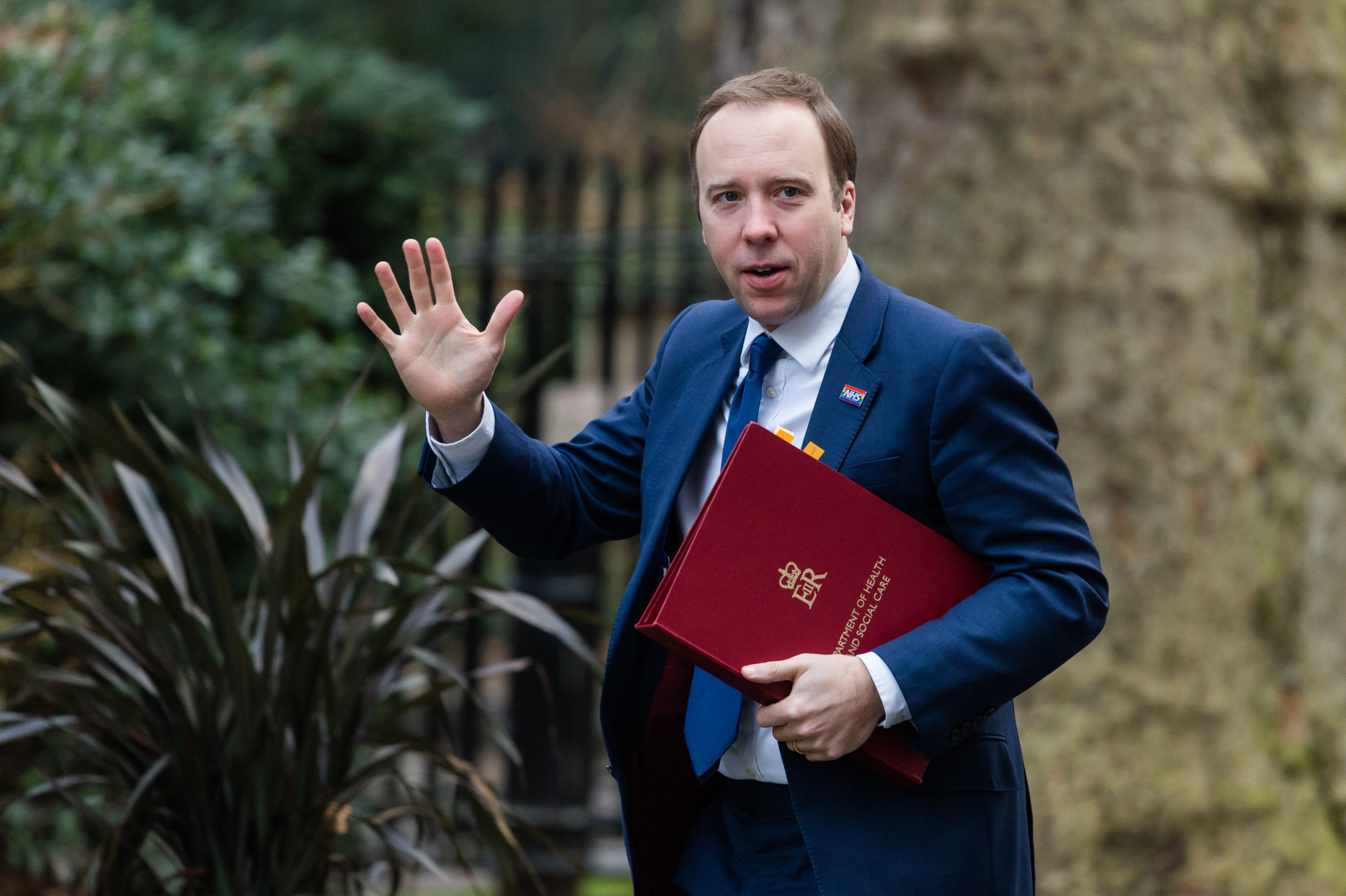New HIV transmissions for gay and bisexual men in the UK drop 71 per cent in six years

A person is tested for HIV. (CLAUDIO REYES/AFP via Getty)
Update: PinkNews originally reported this story on January 16, 2020, as: ‘New HIV transmissions for gay and bisexual men in the UK drop 73 per cent in four years’.
However, Public Health England researchers “spotted an error in their report”. It was not this figure, but 71 per cent in six years.
–
New transmissions of HIV for gay and bisexual men in England have dropped by an estimated 71 per cent since 2012, but a charity has warned that progress is slowing.
A report by Public Health England (PHE) released today showed that the number of new transmissions for men who have sex with men fell from an estimated 2,800 transmissions in 2012 to 800 in 2018.
Overall, there are currently an estimated 7,500 people living undiagnosed with HIV in the UK. The number of gay, bisexual and men who have sex with men living undiagnosed with HIV has halved since 2014 from an estimated 7,000 to 3,600 in 2018.
Additionally, 43 per cent of people were diagnosed at a late stage in 2018. A late stage diagnosis is ten times more likely to result in death in the year following diagnosis compared to those who are diagnosed early.
The government said that it is committed to ending HIV transmissions and HIV-related deaths by 2030, but the HIV and sexual health charity Terrence Higgins Trust has warned that progress is slowing.
Head of policy at at the charity, Debbie Laycock, said: “We won’t end HIV transmissions simply with business as usual as it’s that complacency which poses the biggest barrier to ending the epidemic… While the last few years have been a real success story for bringing down new HIV diagnoses, today’s data shows there is an undeniable slowing happening.”
She continued: “In the last decade the rate of diagnoses in gay and bisexual men has reduced by nearly a third but we are not seeing that same level of progress among other groups. For example we’re seeing slight increases among black African people and south Asian gay and bisexual men.
“No one can be left behind when it comes to ending HIV and progress across all communities is essential if we are to avoid going backwards.”

Health secretary Matt Hancock. (Wiktor Szymanowicz / Barcroft Media via Getty)
In terms of what she would like to see the government do, Laycock added: “The health secretary [Matt Hancock] says prevention and public health are clear priorities for this government yet access to HIV prevention pill PrEP remains capped in England and sexual health services are struggling to cope with demand.
“We strongly support the government’s focus on prevention but it needs to put its money where its mouth is by providing PrEP access for all who need it and ensuring sexual health services are fully funded to play their part in reaching the 2030 target.”
Deborah Gold, chief executive of National AIDS Trust (NAT), agreed that “there is much more for the government to do”.
She continued: “There are still 7,500 people living with undiagnosed HIV, not able to access this treatment and late diagnosis is persistently high (43 per cent).
“The government must once and for all deliver the funding necessary to enable routine commissioning of PrEP as part of a comprehensive and properly funded sexual health service.”
The health secretary said: “I feel very strongly that we must end HIV transmission. HIV has brought untold hurt and suffering to so many, so it is encouraging to see transmissions continue to fall across the UK. We are well on our way towards our ambition of zero HIV transmissions by 2030, and we should be rightly proud of the incredible progress we have already made.
“My unwavering commitment to prevention, and public health campaigns, have tackled the unjust stigma around HIV and has led to more people getting tested and benefitting from life-saving treatment.”
An independent HIV Commission has been established by the government and Terrence Higgins Trust and NAT will make recommendations for achieving the 2030 target. These will be published in the spring.

